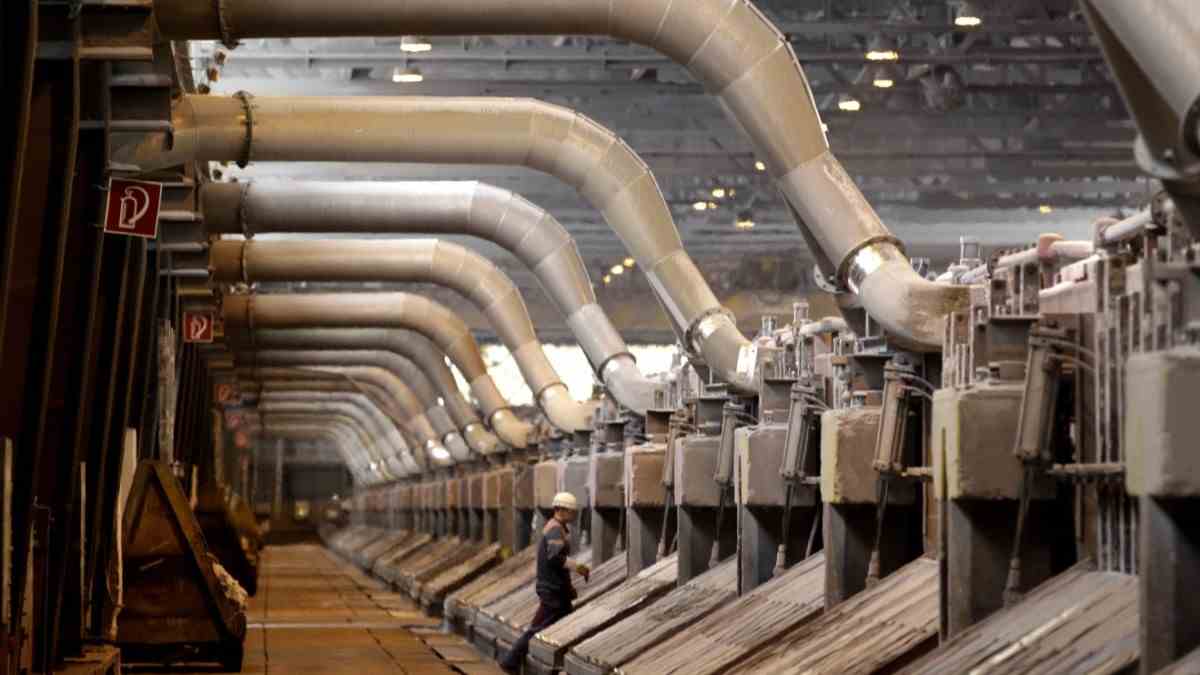Commission chief Ursula von der Leyen calls Europe’s “man on the moon moment”. The EU climate protection program would therefore be as inspiring as the plan to send a human being to the moon for the first time. However, Europe’s industry is threatened with a hard landing. After all, the goal of becoming climate-neutral by 2050 makes production more expensive. Dirty manufactured goods from countries with lax standards could displace European products – and cost tons of jobs.
Von der Leyen wants to prevent these disadvantages for the industry with a climate tariff that makes dirty cheap imports more expensive. It has been discussed for a long time whether such a carbon border adjustment does not break trading rules. Now there is a confirmation before a decisive vote in the EU Parliament this Tuesday: The climate tariff “runs the risk of violating key principles of the World Trade Organization WTO,” warns an unpublished study by the Süddeutsche Zeitung present. The possible consequences: lawsuits from the USA or China – and punitive tariffs worth billions on European products.
In this way, the EU climate goals are counteracted
Much is at stake for Europe. Ambitious climate protection could mean that jobs could be lost in production that uses a lot of energy: iron, steel, aluminum, fertilizer, cement or electricity. And if things like that are dirtyly produced abroad in the future, it will counteract the EU climate goals. Five to 30 percent of the greenhouse gases that Europe wants to avoid could also be produced outside of the continent.
So far, Europe’s industry has been protected by getting free pollution rights. In order to achieve the climate goals, the Brussels Commission is reducing the number of these rights. Their prices go up. And with it the expenses of local industry and the risk that manufacturers will lose out to cheaper imports or relocate their factories from Europe. The climate tariff is intended to stop this: from 2026, importers would have to buy pollution rights and would thus lose cost advantages.
In fact, the EU should treat its trading partners equally
But researchers doubt whether this will go through the world trade judges. The legal analysis shows that elements of the EU climate tax “potentially lead to discrimination against foreign goods,” according to the WU Institute for Law and Governance and the ÖFSE Foundation for International Development. On 51 pages, the experts from Austria list that the climate tariff could, for example, collide with the WTO principle of most-favoured-nation treatment. According to this principle, the EU must treat its trading partners equally.
With the climate tariff, foreign producers do not have to buy pollution rights if their home country has an emissions trading system like Europe. It is different for corporations in the USA, for example, where climate protection is more about regulations. What they avoid because of greenhouse gas regulations is not counted towards them. US companies will probably have to buy pollution rights in the future, which will make their exports to the EU more expensive.
To WTO arbitrators, this could appear as if Europe were treating trading partners unequally. “It is very likely that there will be proceedings,” says Bernhard Tröster from the ÖFSE Foundation, “the USA will probably sue.” It shouldn’t stay that way. The Chinese government has already said the EU border tariff violates WTO rules. The USA and China are two powerful opponents.
The experts see even greater risks if the environment committee of the EU Parliament proposes to expand border tariffs as planned this Tuesday. What MPs decide is important. Together with the governments of the EU countries, Parliament decides what the climate tariff will look like. MEPs want to protect more European producers, for example from the chemical industry. This should prevent even more dirty imports and thus help the climate.
Werner Raza from ÖFSE considers this to be technically unfeasible. Because the EU must determine the emissions of all components and use them to calculate the climate tariff: “40 to 50 metals and lots of other basic materials. And the emissions differ depending on whether the copper comes from the USA or China.” In addition, the expansion increases the risk that the climate tariff will collide head-on with the WTO.
The question now is: How big is the trouble with the WTO?
Rather, Europe should do something to benefit from WTO exemptions. The study commissioned by the Böckler Foundation advises increasing the effectiveness of border adjustments. The climate tariff proceeds of 15 to 20 billion euros should not flow into the EU budget, but into a large-scale promotion of new technology and climate-friendly production. That could not only reduce WTO dangers. But also modernize EU manufacturers so that they are less inclined to migrate despite cheap foreign competition.
The extent of the problems with the WTO also depends on how emissions trading proceeds. So far, European industries have been given free pollution rights to hold their own against rivals from other countries. In order to prevent double protection, these gifts should expire as soon as the climate tariff protects the companies.
The Brussels Commission wants to gradually abolish free pollution rights by 2036. MEP Mohammed Chahim thinks this pace is too leisurely. As rapporteur, the Dutch social democrat is guiding the climate tariff regulation through parliament. He proposesto end the free pollution rights as early as 2028, eight years earlier. And such a quick end could help avoid trouble with the WTO.
Industry representatives think little of his suggestion. They point out, for example, that the climate tariff protects against dirty cheap imports, but not against European companies experiencing unfair competition on important export markets. According to the industry, only free pollution rights can help against this. Chahim is now getting support from the Austrian experts: “Issuing free rights for a very long time clearly increases the risk that the border tariff will fail in a WTO court.”

